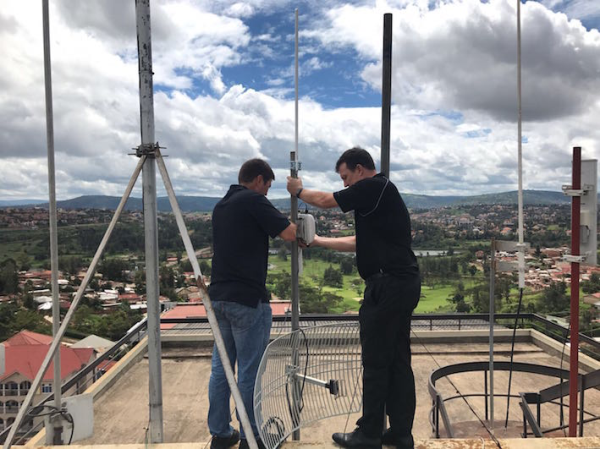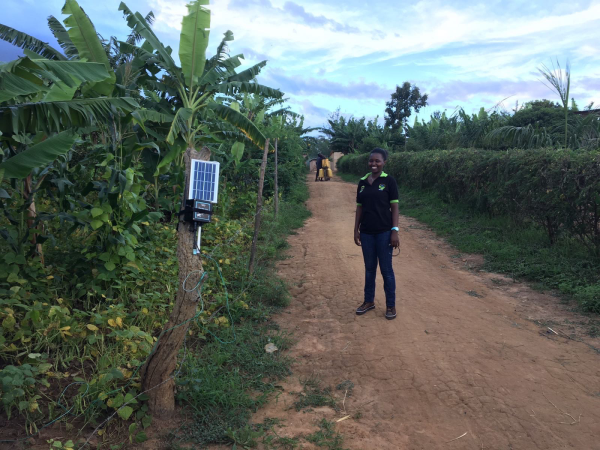10 May 2017

Engineers setting up Kigalis’ smart city LoRaWAN network.
From having very little network connectivity just a few years ago, Rwanda now has ambitions to become a smart city blueprint for other African nations to follow.
The country’s government has launched a flagship Internet of Things project in Kigali which features technology supplied by Inmarsat and Nokia.
Inmarsat has deployed low power WAN infrastructure around the capital using the LoRaWAN protocol to connect sensors and devices in the IoT.
The network went live at the beginning of May and will remain active for an initial period of a year.
It has been developed with Actility, the France-based M2M and IoT specialist which Inmarsat recently invested in.
The network will provide city-wide coverage enabling a variety of organisations to develop and deploy IoT applications on a large scale, as well as allowing entrepreneurs to easily connect their front-end IoT devices through a middleware layer.
To demonstrate the IoT’s transformative potential, Inmarsat plans to work with Jersey Telecom and other partners to deploy a number of proof of concepts and technology validations around Kigali.
These include a smart bus which will be equipped with satellite internet to provide ubiquitous connectivity for remote communities.
The bus will also be LoRaWAN-enabled to provide real-time data acquisition in the communities that it services.
Other planned demos include a precision farming initiative intended to increase crop yield and better manage water resources, and environmental monitoring systems that will feature sensors installed in buildings to gauge air quality.
Inmarsat has also started a range of initiatives designed to educate and empower the next generation of students and entrepreneurs in Africa.
It has launched a Smart Cities Education Programme in Rwanda and plans to replicate it in other countries on the continent in an effort to accelerate the deployment of IoT and smart city solutions.
The programme will include a three-month student internship, as well as an IoT boot camp for students and entrepreneurs.
As part of the initiative, Inmarsat is also working with Rosine Mwiseneza, the 2016 winner of Rwanda’s ‘Ms Geek’ competition which is designed to inspire female university students to employ technology to overcome local issues.
Rosine Mwiseneza, the 2016 winner of Rwanda’s 2016 ‘Ms Geek’ competition, has developed an IoT-based agricultural irrigation solution.
The goal is to create a scalable solution that can be used across Rwanda as well as Africa and the rest of the world via Inmarsat’s global networks.
Separately, Nokia has been chosen by local company SRG as part of its collaboration with the government’s smart city rollout.
SRG will use a variety of products from the Finnish vendor including a mission-critical access network, IP and Cloud Core networks, as well as its Impact Platform with associated IoT applications.
Speaking at the Transform Africa Summit held in Kigali in May, Rwanda’s youth and ICT minister Jean Philbert Nsengimana, said: “Through this project, we will not only improve people’s day to day lives with improved services and security, but [also] anticipate long-term, positive socio-economic benefits.”
Nsengimana claimed Rwanda was now a “pioneer” in deploying a smart city solution in Africa, and that the government’s vision is to position the country as a technology hub.
He added that plan was to share Rwanda’s experience with other nations on the continent.







